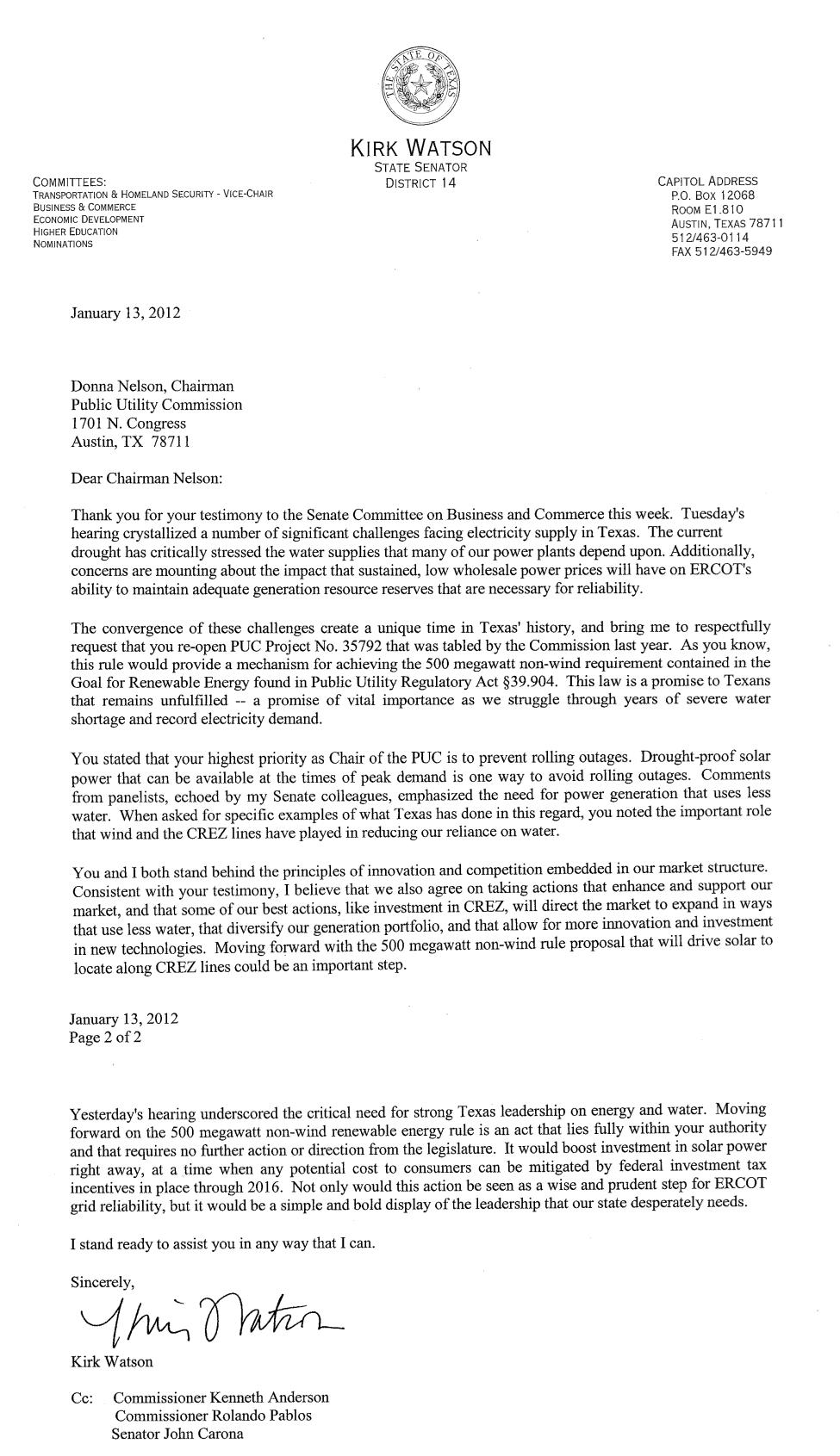Public Citizen’s positions on the pre-filed amendments to the PUC Sunset bill can be viewed here: http://bit.ly/Guide_to_Amend_PUC_Sunset_bill_HB1600 or in the table below.
Support These Amendments to Improve the PUC Sunset Bill
| Bar code # | Sponsor | Description | Comment |
| 830096 | Cook | clean up | cleans up language in bill – no substantial changes |
| 830097 | Cook | clean up | cleans up language in bill – no substantial changes |
| 830077 | Davis | bans sharing of customer info from advanced meters | eliminates the value of smart meter – demand response providers may not be able to operate (NOTE: amendment to the amendment will fix this problem) |
| 830076 | Davis | requires annual review of certificate holders | |
| 830087 | Davis | requires written disclosure prior to releasing info from advanced meters | protects customer privacy while allowing demand response providers to operate with permission of customer |
| 830088 | Davis | makes utility liable for damages to advanced meter during installation or removal | protects customer from unreasonable charges |
| 830089 | Davis | bans billing for average use of electricity | restricts customer choice (NOTE: amendment to the amendment will fix this problem by allowing customers to choose levelized billing) |
| 830090 | Davis | reregulates the electric market | assures adequate resources to meet the load |
| 830101 | King | caps transmission congestion costs | protects consumers |
| 830104 | Phillips | prevents Texas generators from exporting electricity from ERCOT during an electricity emergency | protects reliability in ERCOT |
| 830084 | Phillips | bans cost recovery for interstate transmission lines | out of state electric generators must finance their own transmission |
| 830086 | Rodriguez | sets 35% renewable portfolio standard by 2020 | increases generation, local jobs and investment |
| 830082 | Strama | establishes a peak energy portfolio standard | improves reliability and increases local investment and jobs |
| 830106 | C Turner | requires study by gas utilities on replacing their gas distribution lines | improves safety |
| 830072 | S Turner | requires legislative approval to increase the Universal Service Fund | limits costs to consumers |
| 830073 | S Turner | restricts cease and desist orders for customers to those causing a danger | provides reasonable restrictions of PUC power and protects customers |
| 830078 | S Turner | increases state penalties for market abuses and eliminates double jeopardy | restores recommendation of Sunset Advisory Commission staff to increase fines for market abuse |
| 830103 | S Turner | requires cost-benefit analysis when PUC makes significant market changes | helps protect consumers |
| 830102 | Vo | requires 30 day notice of discretionary changes in electric rates | provides some customer protection against unexpected electric rate increases |
| 830098 | Walle | limits water companies to one rate increase each 3 years and limits the amount of any increase | protects consumers |
Oppose These Bad Amendments to the PUC Sunset Bill
| Bar code # | Sponsor | Description | Comment |
| 830095 | Cook | changes qualifications for PUC commissioners | allows utilities to have too much control over commission |
| 830100 | Gonzalez | gives PUC citing authority over a new plant in the El Paso area | shouldn’t apply to just one company |
| 830085 | Krause | eliminates the PUC’s ability to issue a cease and desist order | jeopardizes reliability |
| 830105 | Laubenberg | eliminates the PUC’s ability to issue a cease and desist order | jeopardizes reliability |
| 830091 | Phillips | interferes with reliability must run plans | could jeopardize reliability and create inefficiencies |
| 830092 | Phillips | requires CREZ lines to be buried in a specific municipality | significantly increases electric consumers’ costs |
| 830093 | Stanford | eliminates cease and desist orders for retail customers | prevents the PUC from stopping abusive behavior and protecting reliability of the electric grid |
| 830094 | Sheets | creates a 5 member Public Utility Commission | two commissioners could meet without following open meeting requirements |
| 830079 | Simpson | eliminates the PUC’s ability to issue a cease and desist order | jeopardizes reliability |
| 830080 | Simpson | eliminates cease and desist orders for retail customers | prevents the PUC from preventing abusive behavior and protecting reliability of the electric grid |
| 830081 | Simpson | shifts cost of opting out of advanced metering to other customers | puts unfair cost burden on customers |
| 830074 | S Turner | changes to single elected commissioner | opens door to even more industry influence over regulators through campaign contributions |



 Today, Public Citizen and
Today, Public Citizen and 




